VOICES: F*CK CHRISTOPHER COLUMBUS: A GLOBAL LEGACY OF IMPERIALISM, ANTI-BLACKNESS, WHITE SUPREMACY BY SIONA PETEROUS
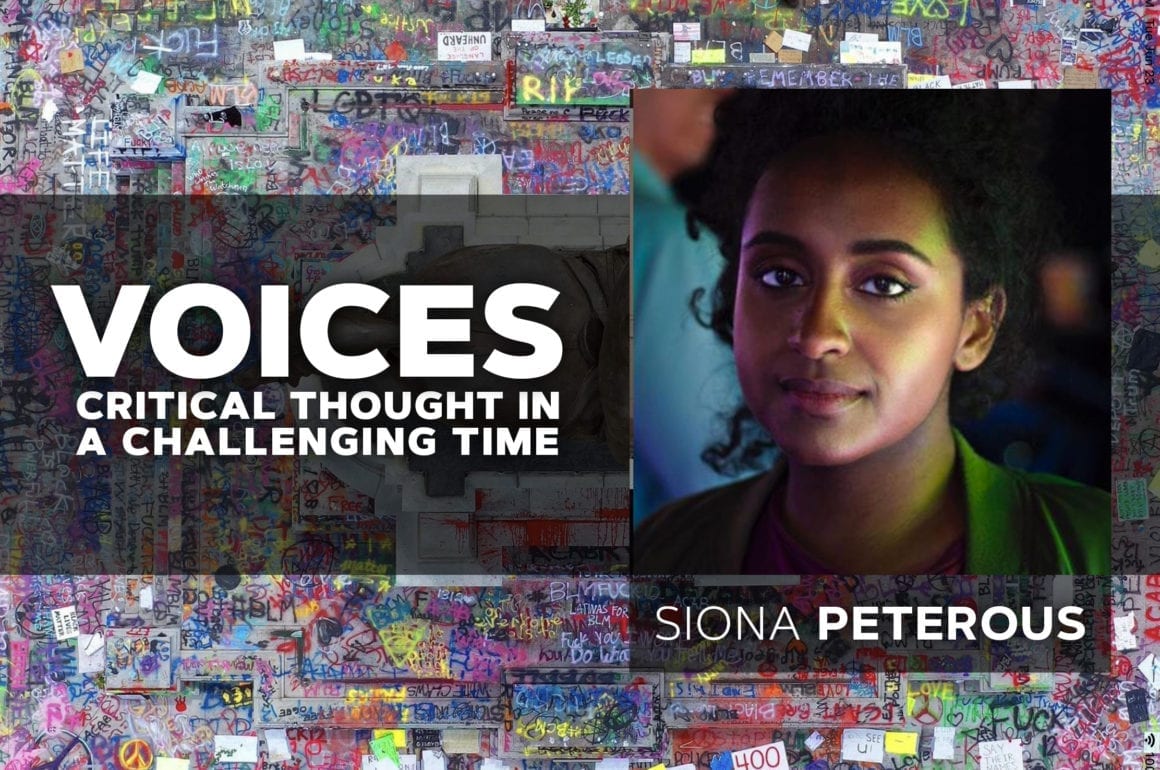
My earliest debate about why we should get rid of Christopher’s Columbus statues and the holiday was in 8th grade.
It was with my geography teacher who often lost her cool with me. In hindsight, I was experiencing blatant racism and internalized sexism. The idea of a Black girl with a foreign-sounding name challenging her – an older white woman – and always telling her that she was racist enraged her. When you add that dynamic into the context of an extremely white, pro-military area like Stafford County, Virginia, it was borderline criminal.
My argument then, as it remains now, is rooted in understanding that Columbus didn’t only represent the eventual intentional genocide of millions of Native Americans. He also represents the mass commodification of the slave trade which would ultimately kidnap an estimated 28 million Black people from Africa and send hem to South America, the Caribbean, Europe, and everywhere else in between.
Columbus represents the onset of European Imperial powers forcibly creating a world that would serve the needs of the white, Christian elite: local cultures, religious beliefs, politics, and human life be damned. His so-called “discovery” embodies the imperial mindset that the Brown and Black bodies of the world must be saved by the white Christians and yes, that saviorism will include mass murders, exploitation of resources, bondage, cultural oppression, and rape as often as possible.
Just some classic, classic God-approved tactics, eh?
The phrase, “White men are saving brown women from brown men” from Gayatri Chakravorty Spivak’s 1985 essay Can the Subaltern Speak? captures how slavery and colonization were justified. It also shows how those systems have been made modern. Now we have a police state and a system that does what it’s been doing to Black and indigenous people all over the world for centuries – criminalizing and sexualizing us as threats that need guidance from the (white) state.
The solidification of anti-Blackness as a social doctrine that became the foundation of the relationships between white supremacy, capitalism, and patriarchy which are front and center in systems being protested is best exemplified by Columbus. Even with the development of Orientalism, the justification used to colonize (and now, invade) the Middle East and parts of Asia, tie back anti-Black principles and white supremacy.
George Floyd should have never been murdered. I will not sit here and martyr someone who simply wanted to live, but people across the world went to the streets for him and chanted Black Lives Matter because they know of many people like Floyd who were impacted by those similar systems of state-sanctioned violence. Even if they are not Black, even if they aren’t in American, even if don’t have the ‘right’ language to describe these systems. They understand the experience of pushing for your humanity to be valued and being told, “no” over the centuries.
“George Floyd should have never been murdered. I will not sit here and martyr someone who simply wanted to live, but people across the world went to the streets for him and chanted Black Lives Matter because they know of many people like Floyd who were impacted by those similar systems of state-sanctioned violence.“
It’s an experience that ties back to the celebration of Christopher Columbus.
PART II
It should be no surprise that when I saw statues of slave owners and colonizers all over the world being brought down, I felt pure joy.
To deface a public effigy questions the people who had the influence to create the statue in the first place. More importantly, it signals that there is a reckoning coming for those who have benefitted from the social construct that comes with the public placement of statues.
There is one specific moment that has stuck with me through the months and I think it will stick with me through the years: it was watching the Columbus statue get torn down in Byrd Park in early June.
I felt all my ancestors were present with me at that moment. I felt them again when I went to the park a few days later to look at the now-empty platform where Columbus once stood. I was overcome with a range of feelings: elation, relief, and a really strong urge to cry. I especially felt the presence of my grandparents with a poignancy I last felt at their respective funerals nearly a decade ago.
I felt my ancestors again when that same week, I saw a video of an Italian journalist, Indro Montanelli, admitting he kidnapped and married a 12-year-old Eritrean girl during the country’s imperial period. The video resurfaced because as part of the global Black Lives Matter movement, people were demanding his statue be removed.
Again, anti-Blackness is a global phenomenon rooted in colonial attitudes.
Yet, many people are still angry at the removal of Columbus. Italian-Americans said it was an attack of their heritage. Others said it’s an assault on history. As the so-called holiday named after him is around the corner, and more people shift to calling it Indigenous Peoples Day, I hear the same old tired debate. I can’t imagine being so invested in celebrating a man who is a global symbol of white supremacy, violent anti-Blackness, orientalism, colonization, and all the things that come attached to that.
Unless of course, I had benefited from all of those things as they have.
As an Eritrean-American who navigates being a Black, queer, woman from an immigrant background in every aspect of life, I often think about how Columbus’ legacy so intimately affected my family.
Italy’s colonization of Eritrea from the mid-19th century into the period right before Ethiopia’s annexation of Eritrea in the 1950s is particularly horrific for many reasons. The frustration at Eritrea’s ability to avoid colonization for so long and an obsession with rebuilding the Roman Empire led to a brutal colonial experiment. I’ve researched the stories of that time period, but I’ve also listened to my elders and others in my community share their first-hand accounts – horrific is the only way to sum it up.
Italian colonization involved not only the killings of Black indigenous Eritreans and forcing them to serve in European wars, but strategic attempts to stamp out cultures and languages of the region’s nine tribes. After all, you can’t have a lucrative colony if you kill the entire labor force. Italian leaders got public support for colonization in parts of Africa by framing it as a source of national pride – they owed it to one of their own, ‘ol Christopher Columbus, to finally become a big imperial power like their European neighbors.
I felt disgusted when I watched the video of Montanelli justifying his marriage of a 12-year-old girl because she could have easily been one of my grandmothers. One of their friends, a neighbor. Technically, under Italian colonial rule, they were just a commodity. Another asset without any rights in the face of the white-supremacist empire rooted in controlling and policing Black bodies.
Sound familiar? I’m not alone in this experience.
Honestly, it’s sometimes beyond difficult to remain hopeful in the face of how potent Columbus’s global legacy is, and how it’s able to morph and adjust with the times.
But I was raised in a community of freedom fighters and have learned from so many ongoing liberation movements. Which include the Palestinian movement, the Oromo movement, the Kashmiri movement, and of course, the expansive Native, Latinx, and Black radical traditions and movements right here in America. I’ve been involved in these spaces for a formative part of my life. It’s where I learned I’m passionate about storytelling and how I developed my unwavering belief that our push for equality is far beyond our lifetimes. We are working for the generations that come after us so they have at least one less barrier in the achievement of freedom. Undoing Columbus’s true legacy is passion work that must happen with each generation.
So when I think back to that moment in June, I like to think that my emotional reaction that the statue drowning in Byrd Pond’s lake were my grandparents, my great-grandparents, their parents, and so on reminding me it’s my duty to keep with the traditions of freedom fighters before me. They were reminding me that these current systems we live in didn’t always exist, they were created – we can and we must re-imagine them.
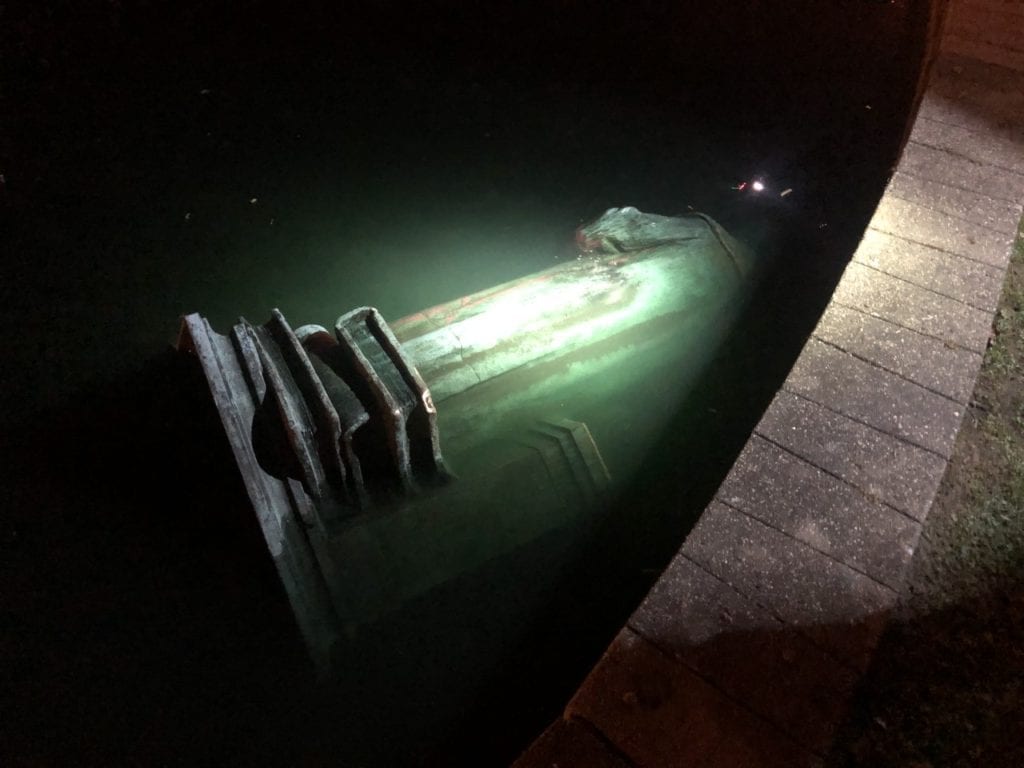
It was a much needed spiritual and ancestral boost to keep chipping away at all aspects of Columbus’s colonial, white supremacist, and anti-Black legacy.
In other words, so the ignorant ones hear me as well, Fuck. Christopher. Columbus.


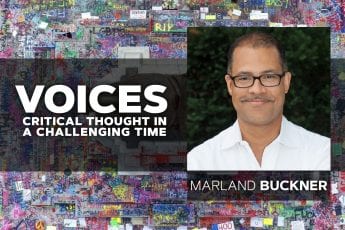
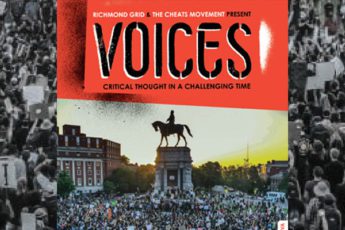
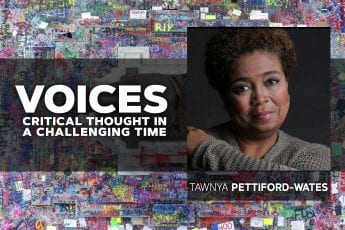

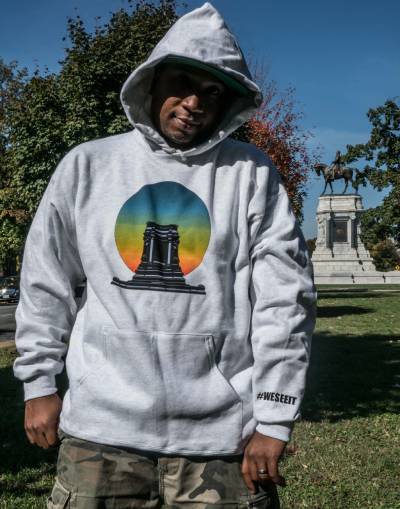 The Cheats Movement is dedicated to hip-hop culture, politics, and community activity. We see our community different than most, therefore, #WESEEIT
The Cheats Movement is dedicated to hip-hop culture, politics, and community activity. We see our community different than most, therefore, #WESEEIT
Leave a Comment